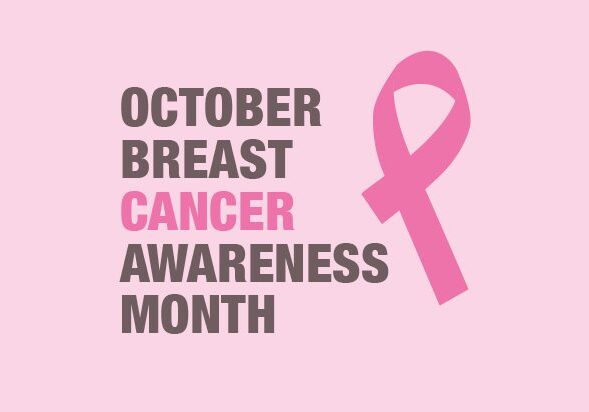Breast Cancer Awareness – how employers can help

This October, businesses up and down the UK will be getting involved in supporting fundraising events as part of Breast Cancer Awareness Month.
Breast cancer is the most common cancer in the UK, so sadly there is every chance that someone in your workplace, or somebody close to them, has personal experience of the disease.
There are many things businesses can do to help support vital medical research, including asking staff to dress in pink on Friday 18 October for Breast Cancer Now’s Wear It Pink day. The more people who join in, the better. For more ideas on raising money at work, look on the charity’s website.
The other key objective of the awareness campaign is to promote the importance of early detection so there’s a better chance of successful treatment. More than 55,000 women are diagnosed with the disease every year in Britain, but thanks to screening and medical advances, more people than ever before are surviving.
Workplaces can be supportive of the campaign’s aims in several ways, including giving staff time off work to attend their mammograms. In the UK all women aged between 50 and 70 are invited for breast screening every three years under the NHS’s national screening programme. Younger women with a family history of breast cancer are advised under UK guidelines to start having annual mammograms in their forties.
Although the risk for younger women is generally low, around 5,000 women under the age of 45 are diagnosed with breast cancer in the UK each year. And men can get it too. It’s rare but there are around 390 cases of male breast cancer every year in Britain.
There is lots of free information out there, and employers can alert staff to it as part of a wider “wellness at work” initiative. You could, for instance, place a Touch, Look, Check card in the women’s restroom so female staff know how to routinely examine themselves for signs of breast cancer, or you could direct them to the charity’s Breast Check Now app.
Given the prevalence of this disease, you may well have breast cancer survivors on your team. Some of them might still be undergoing treatment while for others, their diagnosis is, fortunately, now a distant memory.
Many people who have had breast cancer worry about it returning, so, while they may want to support awareness-raising initiatives, they also find it hard being constantly reminded of what they’ve been through. Everyone deals with a cancer diagnosis differently, and while some survivors are happy to share their stories, others are intensely private, so try and be sensitive to their feelings.
Returning to work after surgery and/or gruelling breast cancer therapies can be challenging, so employers should be prepared to make concessions. As well as dealing with the physical and emotional after-effects – including changes to their appearance – some people also suffer from anxiety and depression once their treatment is over.
To help them readjust to work life, suggest a phased return, offer them flexible hours or different shift patterns, and, if practicable, let them work from home some of the time. Any long absence from work can lower confidence and self-esteem, but a caring employer will realise this and allow staff to gradually ease back into the job at their own pace.
It is also worth noting that anyone who has or has had breast cancer is classed as disabled under the Equality Act 2010, so it is unlawful to discriminate against them because of their disability.
For HR guidance on the issues raised by Breast Cancer Awareness Month – including promoting a healthy working environment and supporting staff after a long sickness absence – contact us today on 01455 444222
Angela Clay
A qualified employment law solicitor and our managing director, Angela has unparalleled legal expertise and decades of experience and knowledge to draw from. She’s a passionate speaker and writer that loves to keep employers updated with upcoming changes to legislation, and is a regular guest speaker on BBC Leicester Radio.




